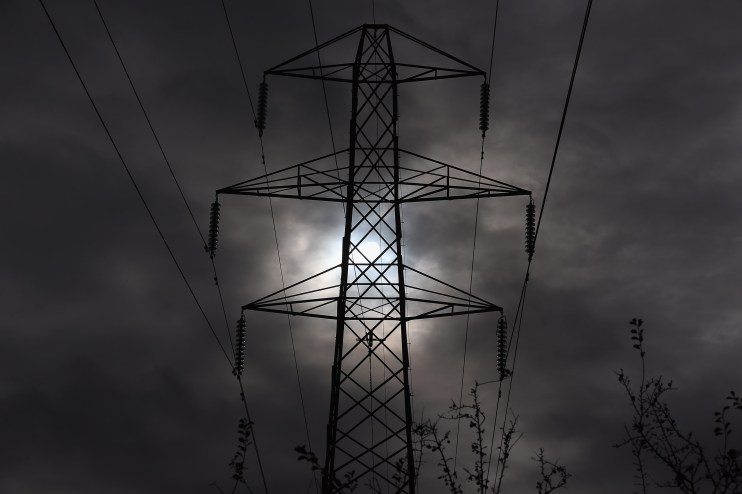Brits paid to use less energy to avoid winter blackouts

Brits could be paid to use less electricity at peak times this winter, under plans from the National Grid to reduce the risk of blackouts and boost long-term energy efficiency.
The company is aiming to establish a scheme to pay millions of consumers with smart meters to ration their usage voluntarily when supplies are scarce, as first reported in The Times.
The project is being run by National Grid’s electricity system operator (ESO), and would financially support households shifting the time they carry out power-hungry activities such as cooking, using the washing machine or charging electric vehicles.
It argued this could be a cheaper and greener option than paying fossil fuel power plants to generate more electricity, as Russia restricts gas supplies into Europe and raises fears over supply security.
Households typically pay 28.34p for each kilowatt-hour of electricity they use, but could instead potentially be paid as much as £6 for each kilowatt-hour that they avoid using at peak times, according to initial proposals seen by The Times.
Energy bills soared to a record average of £1,971 per year in April, and Ofgem chief Jonathan Brearley has warned the consumer price cap could rise to £2,800 per year in October.
Meanwhile energy specialist Cornwall Insight has forecast the price cap could climb to over £3,000 in January when demand is at its highest in the cold winter months.
Trial successful: National Grid looks to ramp up scheme
Earlier this year, ESO carried out trials with about 100,000 Octopus Energy customers.
In the Octopus trial, households were given a day’s notice to reduce their consumption during a two-hour period – between 4.30pm and 6.30pm, when national demand is highest.
Octopus revealed the average household saved 23p per two-hour period, although some saved as much as £4.35.
The renewables-only supplier separately also engaged in a winter workout scheme last year to help reduce energy bills with tips and efficiency measures.
Its chief executive Greg Jackson told City A.M. earlier this year energy suppliers needed to act like personal trainers, providing helpful advice to meaningful make a difference.
ESO wants to offer the scheme on a nationwide basis, and reportedly wrote to suppliers last week asking them to assess how much their customers could be persuaded to cut their demand at peak times.
It is understood to have given them only a week to respond.
Government modelling has warned that in a reasonable worst-case scenario the UK could face rolling blackouts this winter.
In recent weeks, it has extended the life of a coal power plant in Nottinghamshire, which will now run over the winter, and is currently weighing up plans for a new coal plant in Cumbria.
It is also expecting the results from a geological survey into fracking later this week.
The cost of the proposed scheme would be levied on household bills however ESO believes all households would benefit if the payments to those households reducing demand through the scheme are less than it would have to pay power plants for an equivalent increase in supplies.
An ESO spokesperson told City A.M,: “Demand shifting has the potential to save consumers money, reduce carbon emissions and offer greater flexibility on the system and some forms of demand management are already used today to help balance the system.”
“Innovation that drives consumers value and reduces carbon emissions will always be deployed as swiftly as possible, in a tested, safe and reliable way.”
City A.M. understands the efficiency plans remain in their early stages, and that there is no guarantee the scheme will be ready for this winter – with ESO also targeting long-term efficiency measures to reach net zero carbon emissions in 2050.